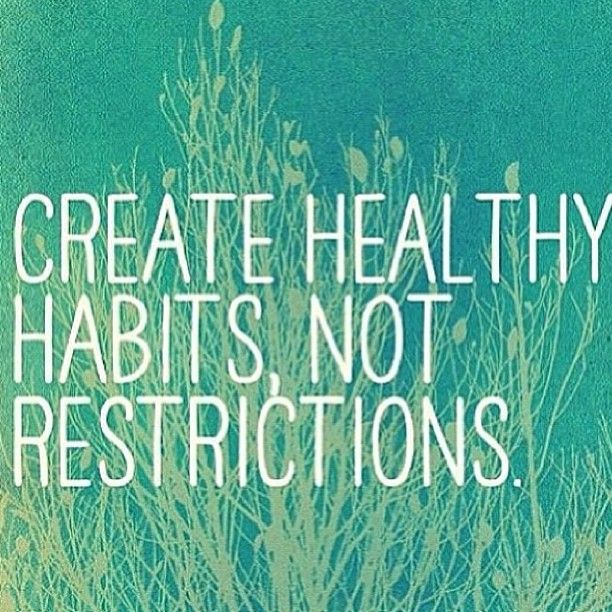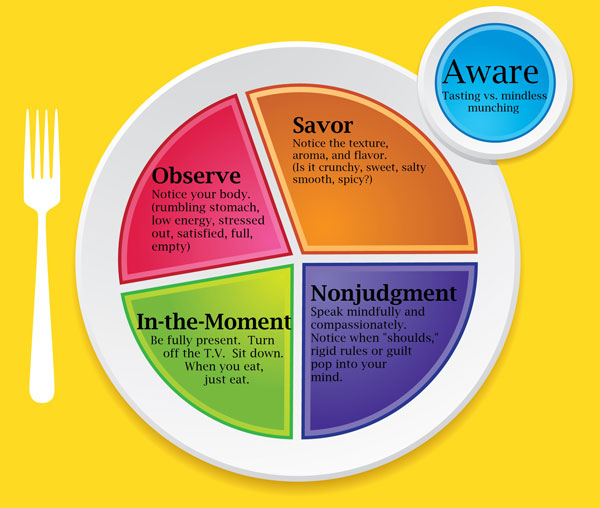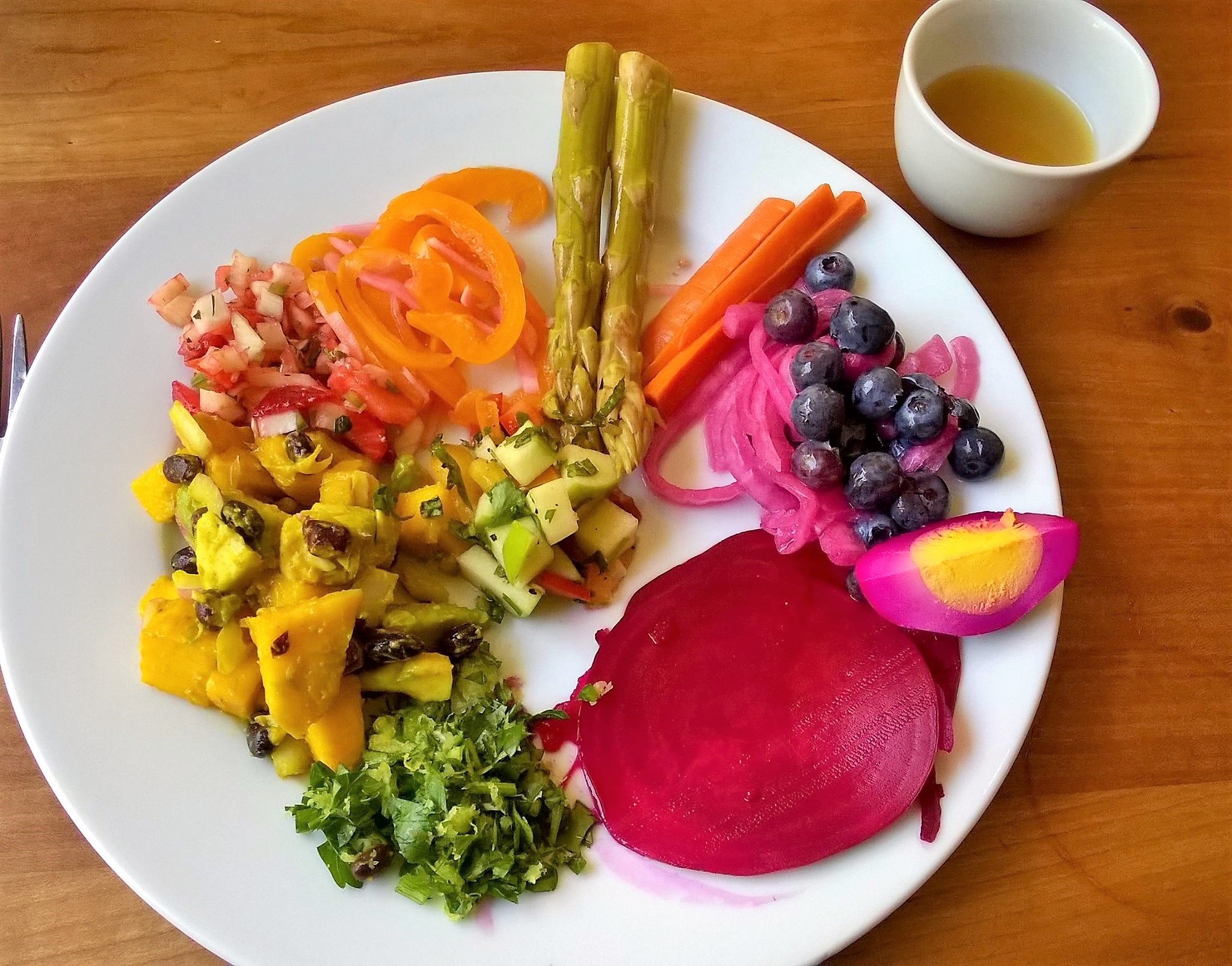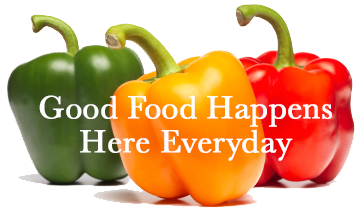
Create Healthy Eating Habits
What you eat affects your energy, sleep, mood and so much more. Therefore, if you know why it’s important and what to do, you’ll find healthy eating enjoyable, satisfying and rewarding. When you learn how to make simple changes that are not overwhelming, healthy eating can be sustainable and fun. Eating is a balance of moderation and variation, not deprivation. A few rules I live by: Count nutrients not calories. Avoid fad diets with expiration dates. Boost your metabolism don’t destroy it. And most importantly, focus on long term and healthy eating habits that are sustainable.
A good diet is one of 3 keys to living a healthy lifestyle; the others are sleep and exercise. Creating healthy habits are the keys to making them work for you. And if you establish an overall pattern of healthful nutrition, you’ll have plenty of wiggle room to savor the treats that matter most to you. I typically approach it with an 80/20 target in mind but you need to decide what works best for you. For instance, 80% of the time I embrace healthy eating while 20% of the time I treat myself (without regret). A big part of creating these healthy habits is learning to not punish yourself when you enjoy cake, cookies, pizza or fries. Eat it, savor it and move on. Life is way too short to beat yourself up over it. The biggest joy is finding the balance that works and fits your lifestyle.
One key aspect to creating healthy eating habits is getting in touch with your hormones and body signals……which are there for a reason. Ghrelin, signals hunger, and Leptin, signals fullness. We’ve been told to eat 3 meals, 3 times a day for a very long time. This is an old motto that doesn’t necessarily work for everyone. You should eat when you’re hungry and not because it’s a certain time of the day. The new motto should be: Do what works best for you. We refer to this as Individual Biochemistry in nutrition.
Why do we struggle with getting in tune with our bodies? Our day-to-day culture is largely defined by running from one task to the next. You’re running late to work. You overslept after staying up way too late binging your favorite show. There’s no time for breakfast, let alone packing a lunch. You’ll just go out to eat again. Exercise isn’t on the day’s agenda because you’re far too tired. Sound familiar? Always being in a hurry affects all aspects of our health, such as digestion, sleep and exercise. Creating healthy habits can help manage stress and improve overall health.
Beginning with food itself, stock your pantry with whole foods and start to get rid of the CRAP (aka processed food). Part of the appeal of CRAP is its convenience. By utilizing meal prep, you can create healthier grab-and-go snacks like tahini roasted chickpeas or oatmeal chocolate chip balls. Initially meal prep can be overwhelming, I get it. That’s why you want to keep it simple. When you sign up on my website, you will get 8 weeks of healthy and easy plant based recipes. These are designed to get you started with very basic recipe ideas and not a long list of ingredients.
Another healthy habit to strive for is to make half your plate loaded with fruits and veggies. Chop a few carrot sticks and celery or slice some bell peppers at the beginning of the week for an easy, nutritious snack. This will help you aim for six to nine servings of fruits and vegetables every day.
It matters what you eat, but it also matters how you eat. Do you eat in a rush? Standing up? In front of a screen? Driving? The practice of mindful eating challenges this cultural norm by bringing awareness of our food during a meal. Mindful eaters slow down and fully appreciate the sensory details of the food. This awareness and appreciation can reduce your likelihood to overeat and helps the digestive system maximize nutrient absorption.
With a digestive system over 30 feet long, chewing aids in digestion and the absorption of nutrients. Chewing thoroughly breaks the macromolecules into tiny particles that help our digestive systems work more efficiently. So, eat slower, with a friend, put the phone down and turn the TV off. Sometimes, we eat when we’re bored, stressed, sad or overwhelmed. We even confuse hunger with thirst. Another pillar of mindful eating is distinguishing emotional hunger from physical hunger. If your hunger comes on suddenly and can’t be satisfied after a full meal, it’s likely you’re emotional eating. Similarly, if you’re only hungry for certain foods and feel guilty or shameful after eating, you’re probably feeding your emotions.
In order to stop using emotional eating as a coping mechanism, you need to find and address the cause of the behavior. Some people find that eating with others helps, while some prefer to join a support group that checks in with how they feel each week. Incorporating mindful eating or seeking professional guidance can also help identify any underlying problems. It’s different for everyone and should be personalized so that it works for you.
Now that’s a plateful of information on creating healthy eating habits, so let’s pick one that will work you for. What will that be? Determine your healthy ratio for balance and moderation, not deprivation. Manage your stress, sleep and daily schedule. Make time for meal planning. Fill half your plate with fruit and veggies. Practice mindful eating. Whatever you choose, I hope it becomes a healthy habit and you notice the benefits.
References:
Columbia Health. (2018, March 5). Alice! Health Promotion Guide to Mindful Eating. Retrieved from https://health.columbia.edu/content/alice-health-promotion-guide-mindful-eating
Dennett, C. (2017, March 02). Hunger vs. thirst: Are you eating when you should be drinking? Retrieved from https://www.seattletimes.com/life/wellness/hunger-vs-thirst-are-you-eating-when-you-should-be-drinking/
Goldman, H. (Ed.). (2017, August). Struggling with emotional eating? – Harvard Health. Retrieved from https://www.health.harvard.edu/diet-and-weight-loss/struggling-with-emotional-eating









